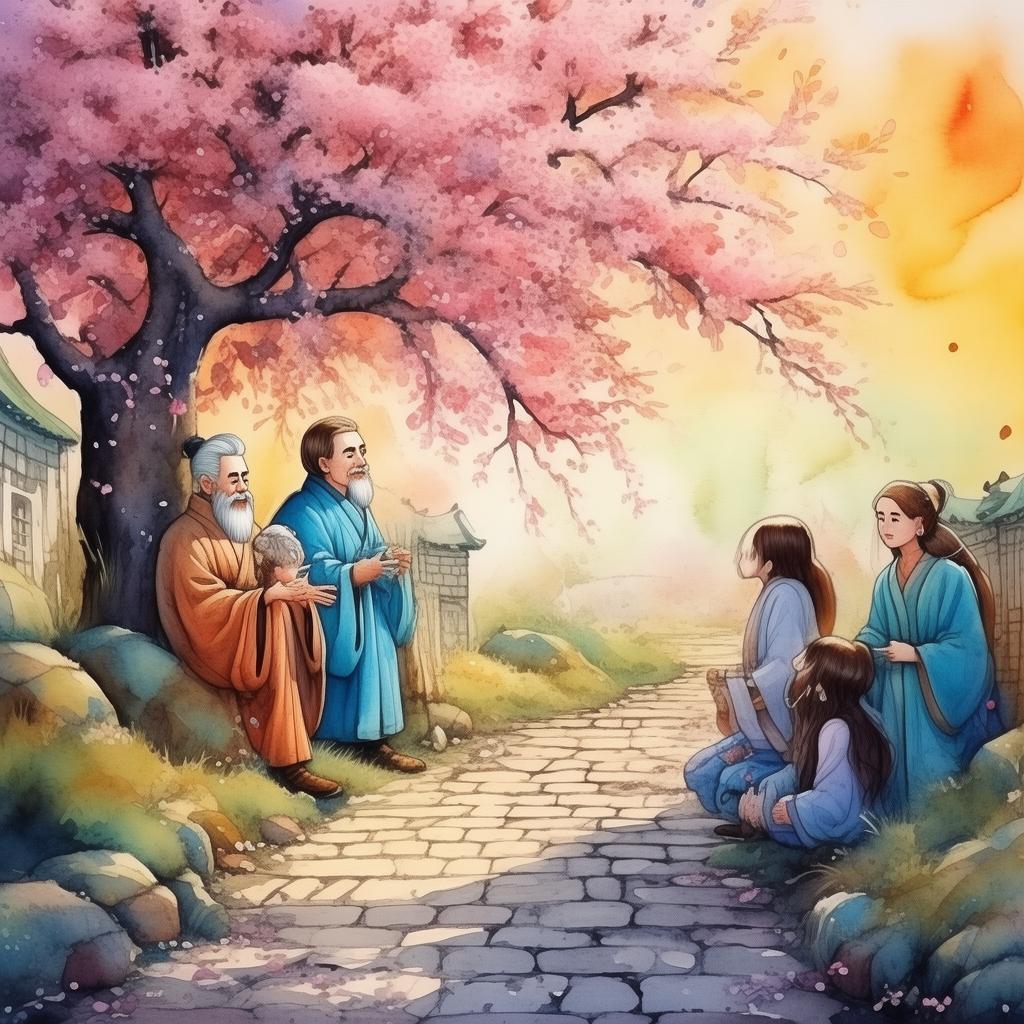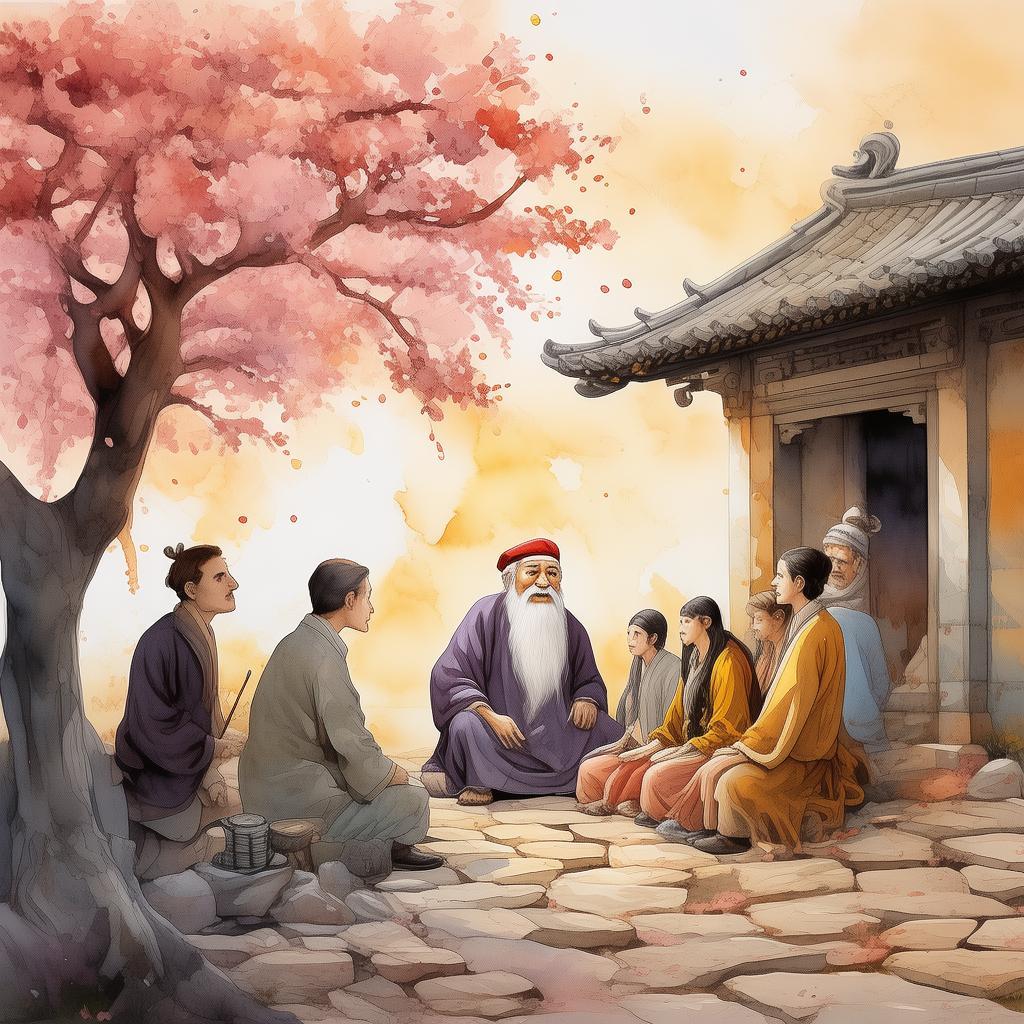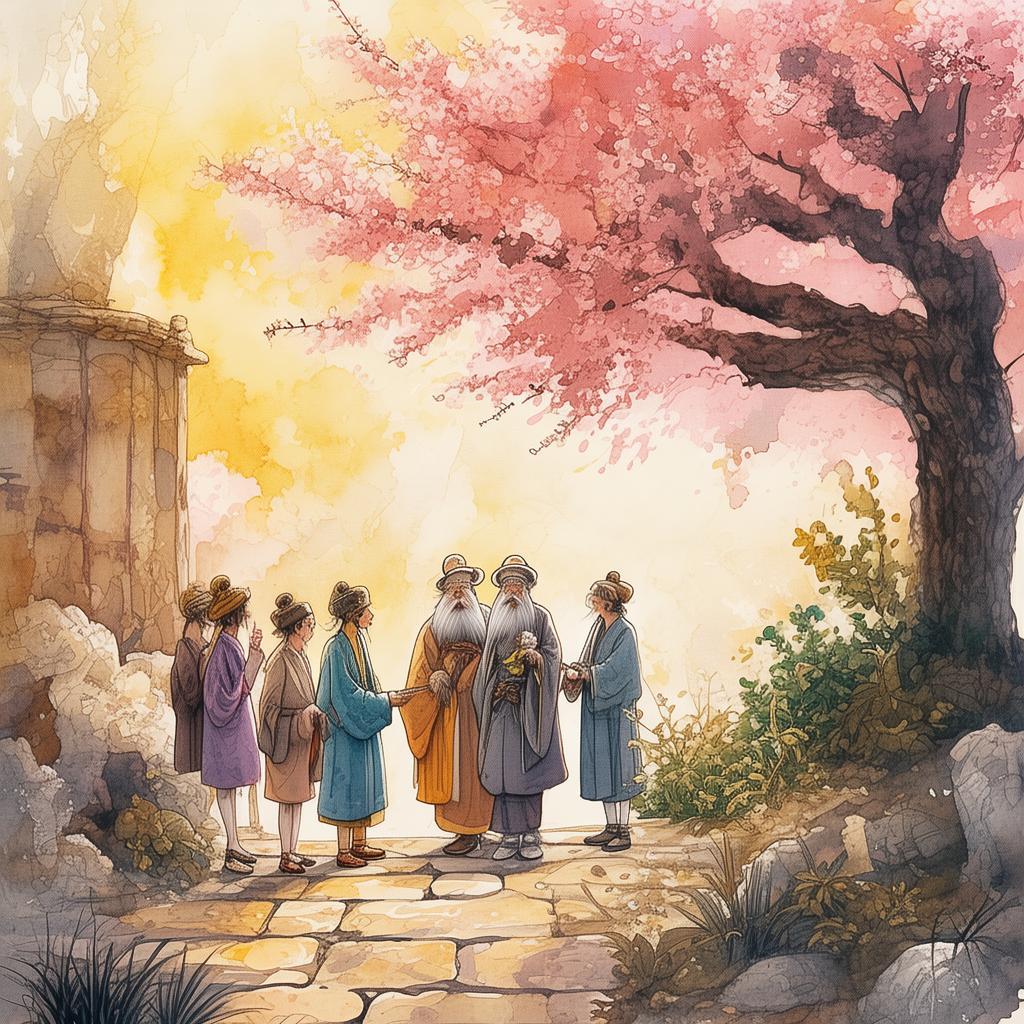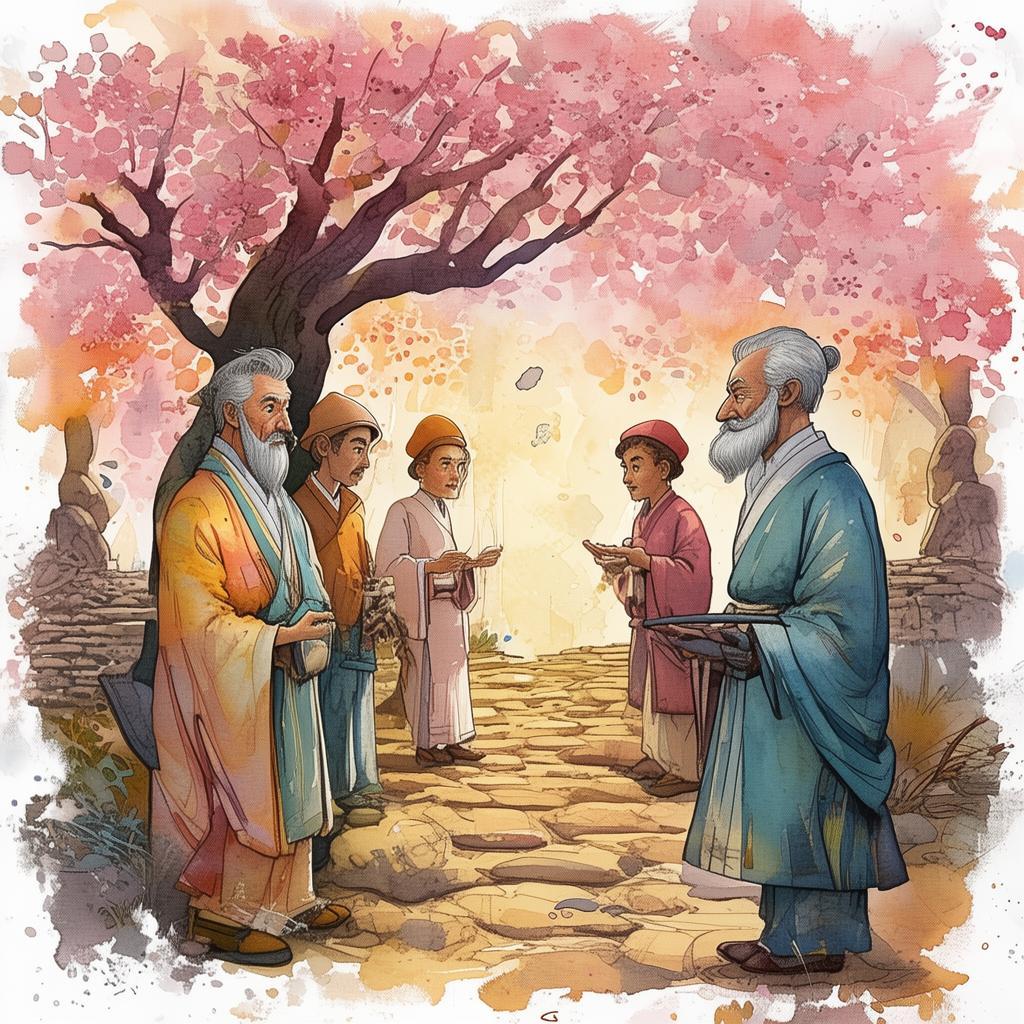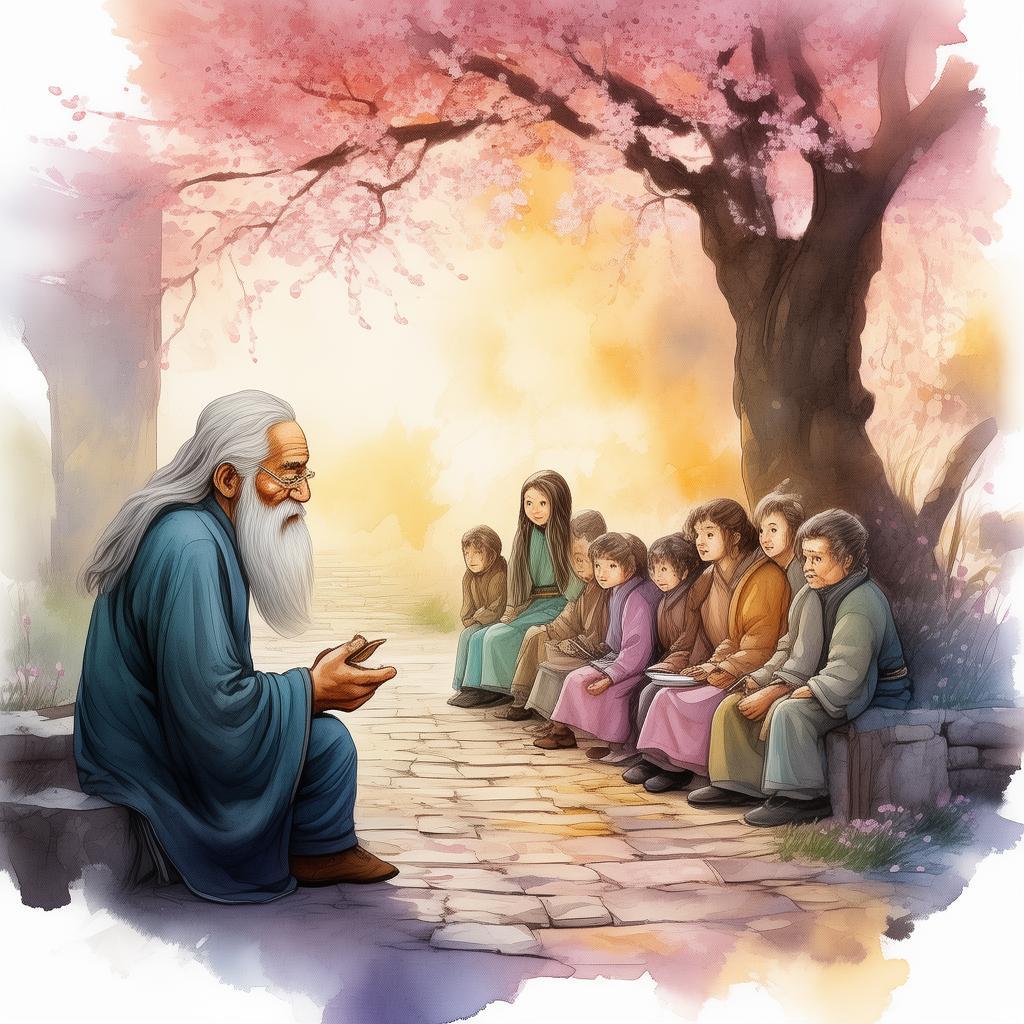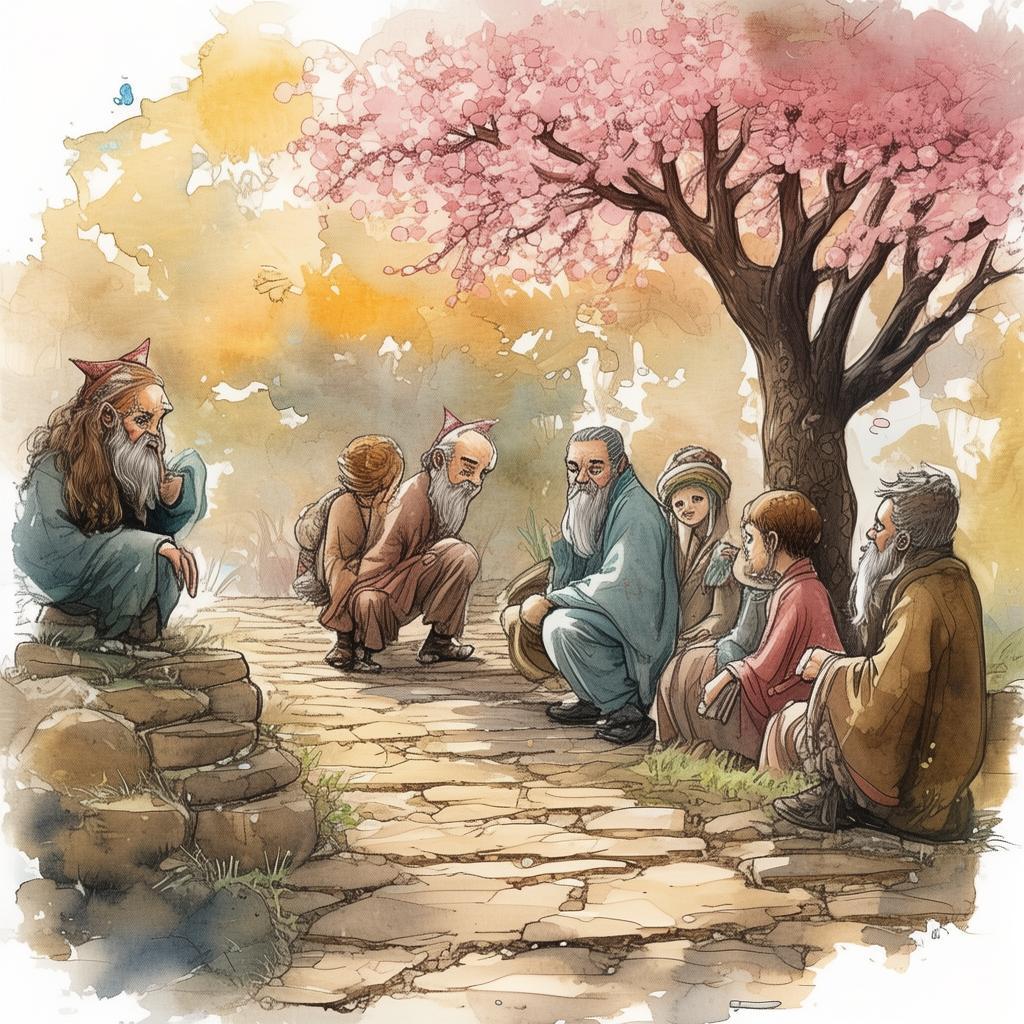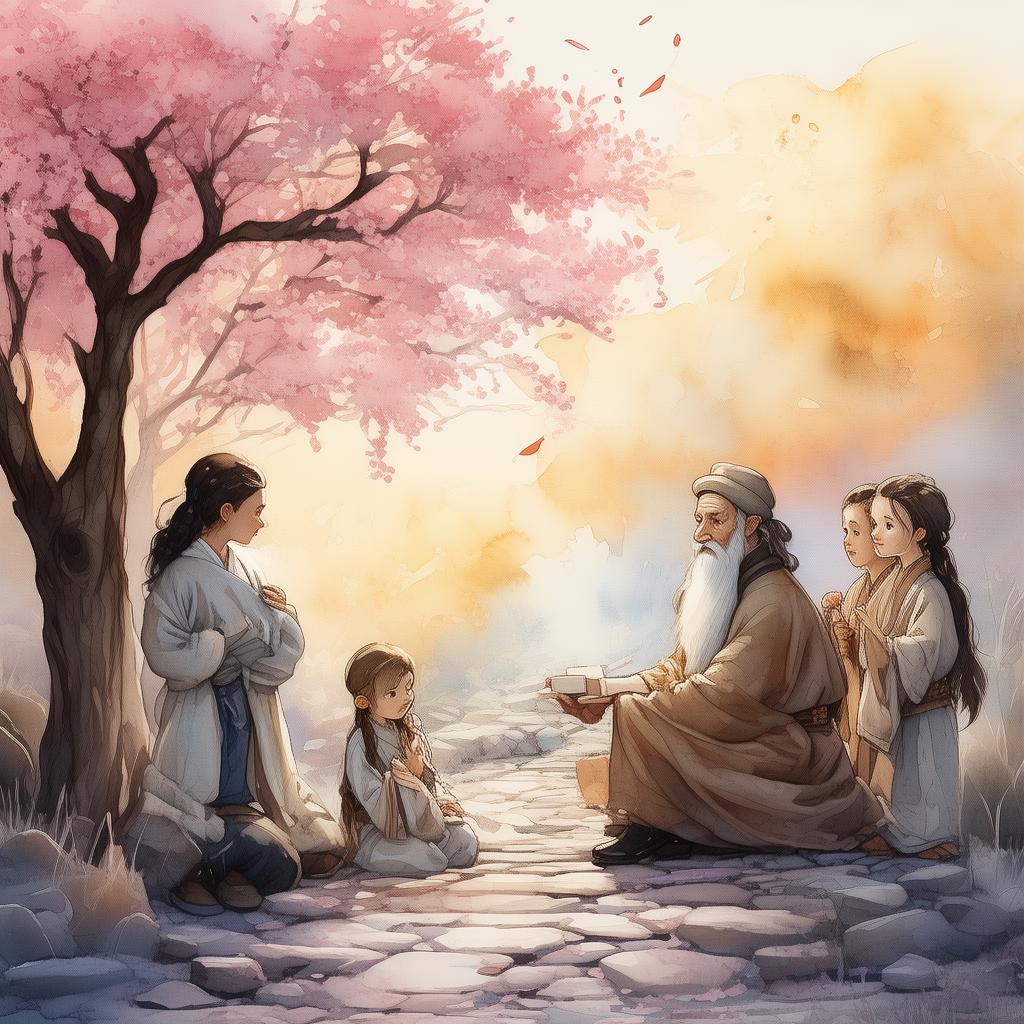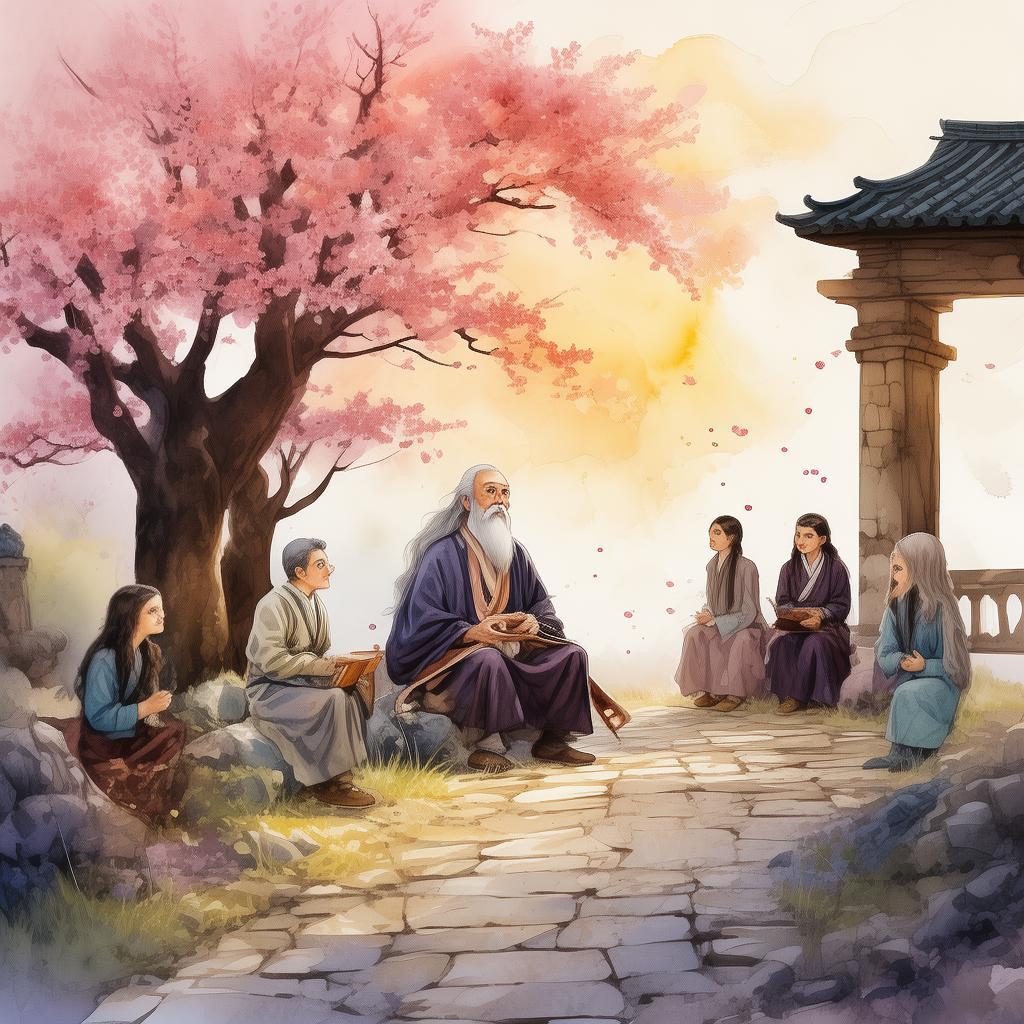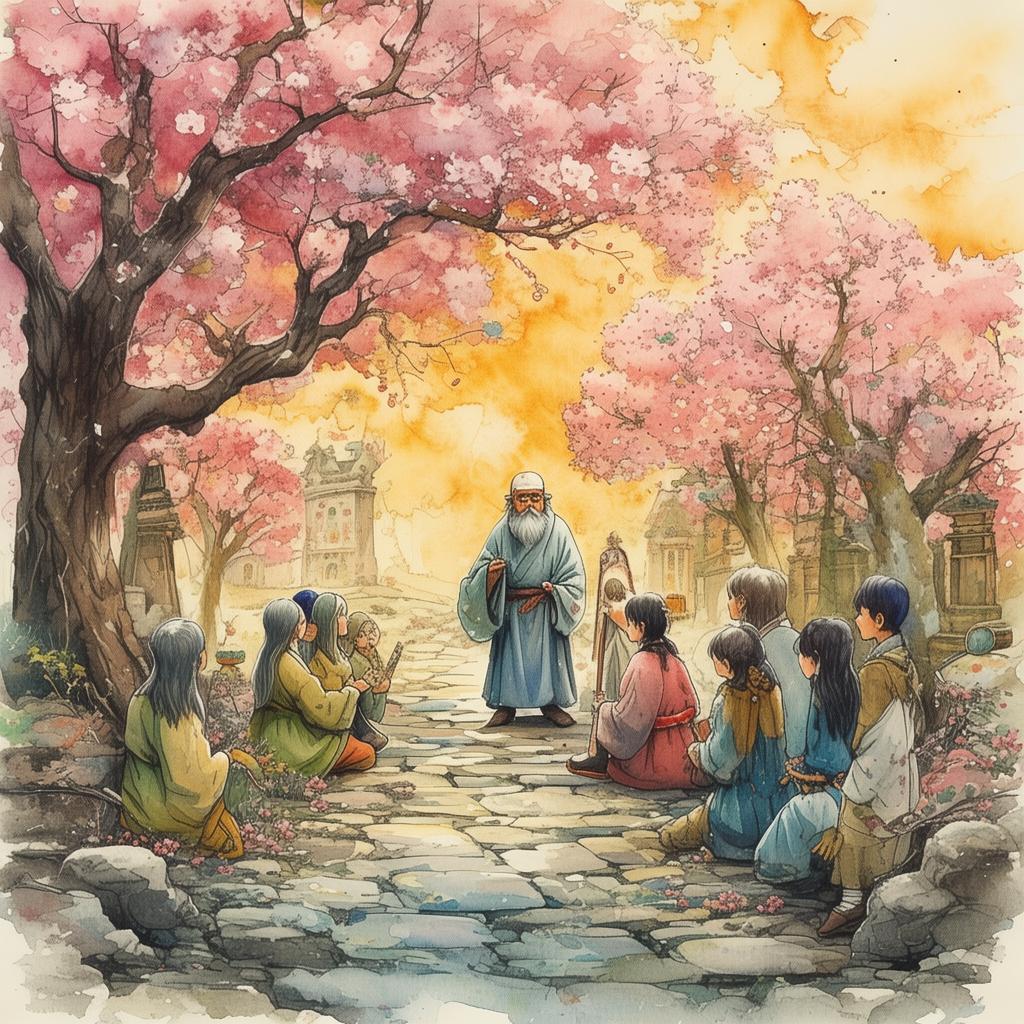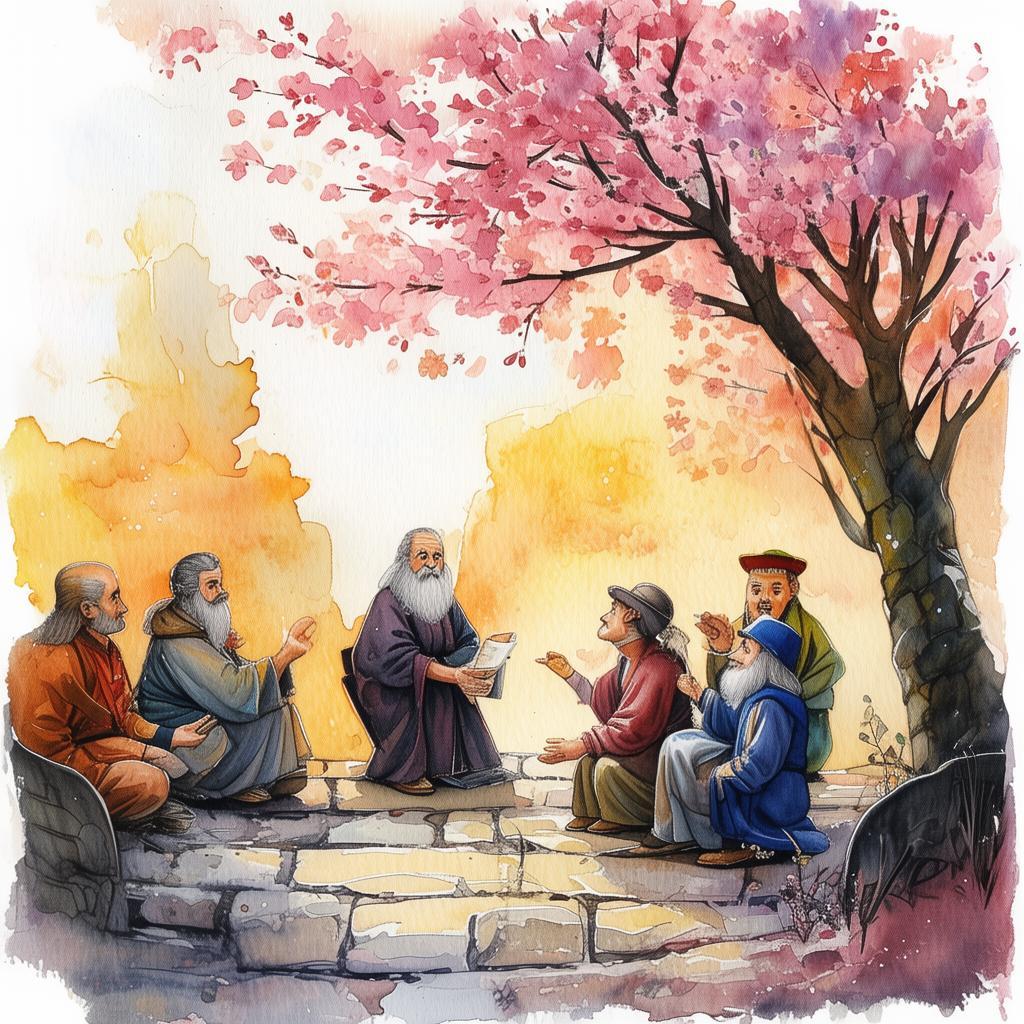The Labyrinth of Virtue: A Quest for Enlightenment
In the ancient land of Eudaimonia, there lived a wandering philosopher named Zhi. Renowned for his wisdom and quest for virtue, Zhi was known far and wide. His journey through life was a constant pursuit of understanding the nature of goodness and the path to enlightenment.
One day, Zhi heard tales of a mysterious labyrinth hidden deep within the heart of the Enigma Forest. It was said that the labyrinth was a place of great wisdom, where the essence of virtue could be found. With a heart full of curiosity and a mind eager for enlightenment, Zhi decided to embark on a journey to uncover the labyrinth's secrets.
The Enigma Forest was a place of wonder and mystery. Its dense foliage concealed paths that seemed to lead nowhere, and the air was thick with the scent of ancient trees. As Zhi ventured deeper into the forest, he encountered a wise old hermit who offered him a riddle to test his worthiness:
"I am not alive, yet I grow; I do not have lungs, but I need air; I do not have a mouth, yet water kills me. What am I?"
Zhi pondered the riddle for a moment before answering, "You are fire, for you grow, require air, and are extinguished by water."
Impressed by his insight, the hermit revealed the path to the labyrinth: "Follow the path of the river, and you shall find the entrance to the labyrinth of virtue."
Zhi set off, following the winding river through the forest. The path was fraught with moral dilemmas, each a test of his virtue. He encountered a man who had lost his way and was desperate for help. Should Zhi offer assistance, or should he let the man face the consequences of his own actions?
Zhi chose to help, guiding the man to safety. This act of kindness was a reminder of the importance of compassion and the value of aiding others.
Continuing his journey, Zhi came upon a woman who had fallen into a deep pit. She was crying out for help, but the path was too treacherous to reach her. Should Zhi ignore her cries or find a way to save her?
Once again, Zhi demonstrated his virtue by finding a way to reach the woman and pull her to safety. This act of bravery and selflessness further solidified his resolve to seek enlightenment.
As Zhi approached the entrance to the labyrinth, he was greeted by a guardian who demanded he prove his worthiness once more. The guardian presented him with a choice: to take the easy path, which would lead to a false sense of enlightenment, or the difficult path, which would require true virtue and self-reflection.
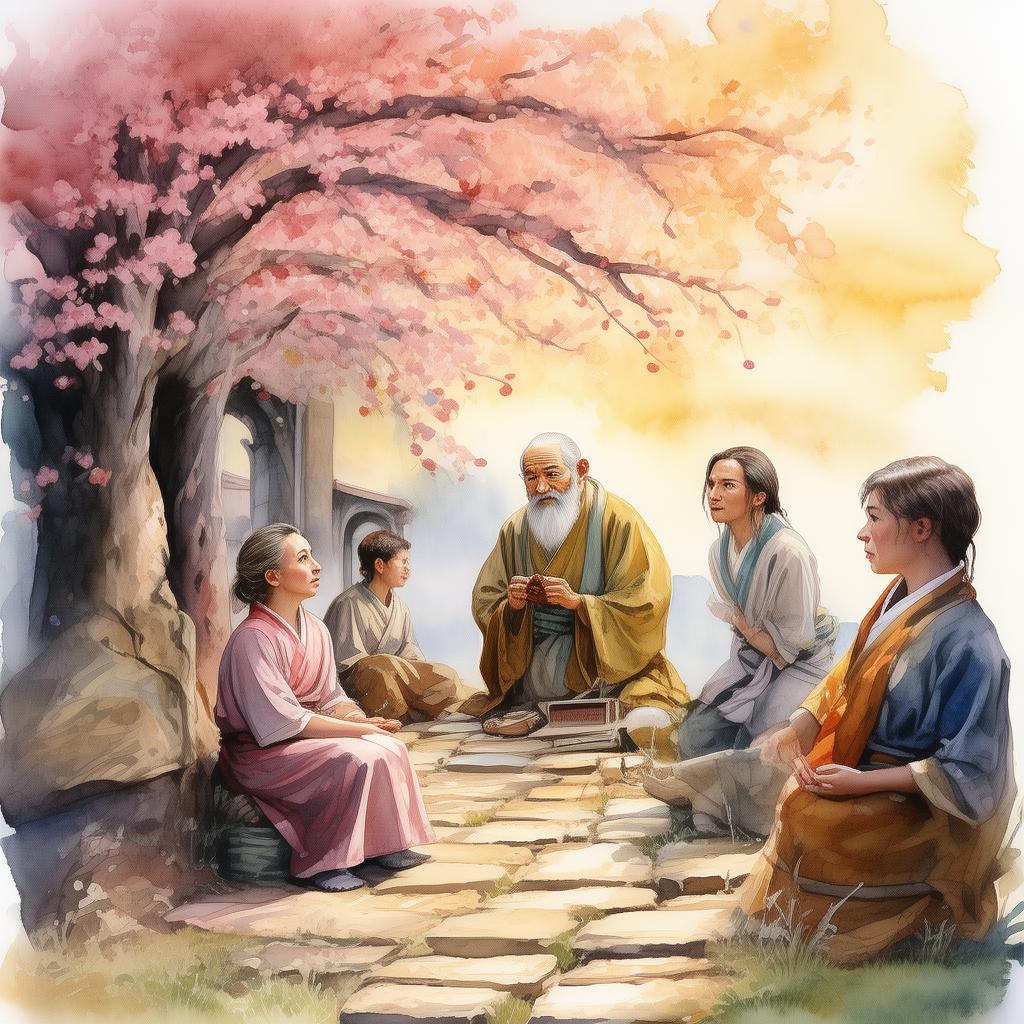
Zhi chose the difficult path, knowing that only through struggle and introspection could he truly understand the nature of virtue. The labyrinth was a maze of mirrors, each reflecting a different aspect of his character and the virtues he had cultivated.
In the labyrinth, Zhi encountered his own shadow, representing his flaws and weaknesses. He had to confront his fears and insecurities, acknowledging that true enlightenment came from self-awareness and the willingness to change.
As Zhi navigated the labyrinth, he learned that virtue was not a destination but a continuous journey. He realized that the essence of goodness lay within himself, and that he had the power to shape his own destiny.
Finally, Zhi reached the heart of the labyrinth, where he found a serene garden filled with flowers of all colors. In the center stood an ancient tree, its branches laden with golden fruit. The guardian revealed that the tree was the source of enlightenment, and that the golden fruit represented the virtues of wisdom, compassion, courage, and integrity.
Zhi reached out to pluck a fruit, but the guardian制止 him. "The fruit of enlightenment is not to be taken," the guardian said. "It is to be experienced."
Zhi understood the guardian's words. He realized that the true essence of virtue was not in the possession of knowledge or power, but in the application of that knowledge and power to improve oneself and the world around them.
With a heart full of gratitude and a newfound understanding of virtue, Zhi left the labyrinth and returned to the world. He shared his experiences with others, inspiring them to embark on their own journeys of self-discovery and enlightenment.
The Labyrinth of Virtue: A Quest for Enlightenment is a story of self-reflection, moral growth, and the enduring power of virtue. It serves as a reminder that the journey to enlightenment is a lifelong pursuit, one that requires courage, compassion, and the willingness to face one's own flaws.
✨ Original Statement ✨
All articles published on this website (including but not limited to text, images, videos, and other content) are original or authorized for reposting and are protected by relevant laws. Without the explicit written permission of this website, no individual or organization may copy, modify, repost, or use the content for commercial purposes.
If you need to quote or cooperate, please contact this site for authorization. We reserve the right to pursue legal responsibility for any unauthorized use.
Hereby declared.
